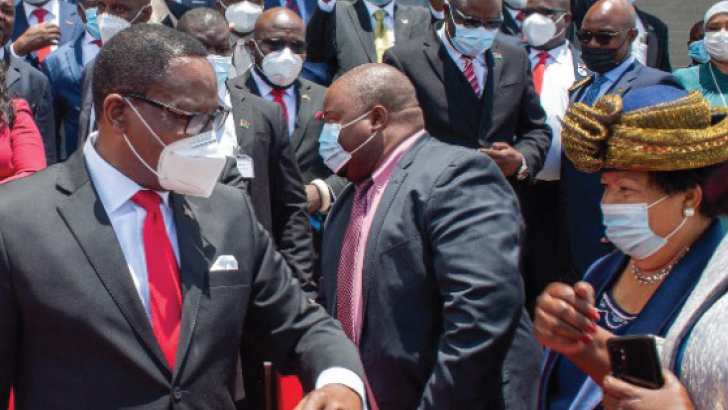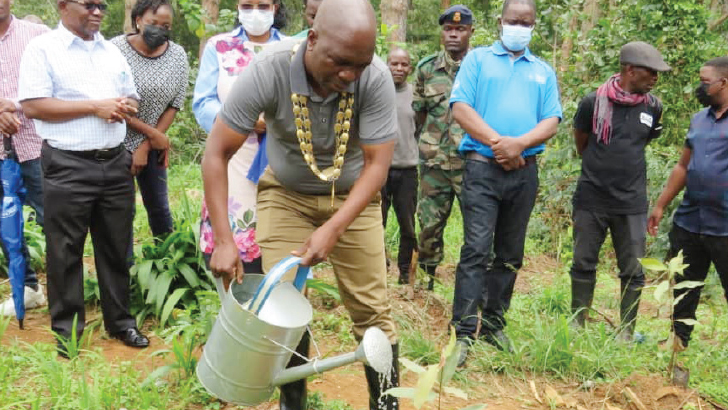President Lazarus Chakwera yesterday said the economy is recovering steadily owing to numerous recovery policy measures, including safety nets his administration is implementing to ensure citizens enjoy a better life.
However, economic experts have warned the President that matters of economy are not a perception, but a reality on the ground.
They said if there is recovery, people must feel it automatically. For the experts, the situation is to the contrary as the economy is worsening.
In the President’s State of the Nation Address (Sona) delivered yesterday in Parliament in Lilongwe at the start of 2022/2023 Budget Meeting, Chakwera said in 2022 the economy is expected to grow by 4.1 percent.
Chakwera greets some of the members after delivering the speech
This is up from last years estimated three percent growth, which was also higher than 0.8 percent growth realised in 2020.
The higher growth, he said, was attained, including creation of 997 423 jobs, in spite of the continued negative impact of the Covid-19 because of timely and effective government interventions.
Chakwera said: “Among many of these interventions [is] the Affordable Inputs Programme [AIP] that led to improved output in maize and other subsidised agricultural commodities which boosted the growth of the agricultural sector in general.
“Improved energy production, following the commissioning of the solar farm in Salima, and the rehabilitation of Tedzani Power Station and Nkula Power Plant contributed to GDP [gross domestic product] growth both directly and indirectly through boosting manufacturing and irrigation activities.”
The President said government interventions to contain the spread of Covid-19, including vaccinations, also contributed to the rebound of the economy.
However, Chakwera conceded that the cost of living has gone up, which is reflected in the jump in annual average inflation from 8.6 percent in 2020 to 9.3 percent in 2021.
He also projected that owing to the continued rise in fuel prices on the global market currently above the $90 mark a barrel, and depreciation of the Malawi kwacha, annual average inflation will continue on an upward trajectory to 9.6 percent in 2022.
Chakwera said additional factors creating inflationary pressures are supply chain-related, such as long queues of containers of goods waiting to unload, shortage of labour, and lack of critical inputs for most products due to Covid-19.
The President said the weakening of the Malawi kwacha against major trading currencies such as the dollar are as a result of reduced export proceeds and drying taps of donor assistance.
“As a result of these two major developments, gross official reserves in December 2021 covered only 1.72 months of imports compared to December 2020’s import cover of 2.75 months,” Chakwera said.
In an interview yesterday, Economics Association of Malawi executive director Frank Chikuta said what Chakwera announced were just mere projections and estimates subject to be verified at a later stage.
He said: “To attain such growth figures depends on what government is going to do in terms of economic policy measures because reasonable growth figures are attainable, depending on policies introduced to attain such projections.
“On the issue of recovery, we have seen the economic performance in the past two years largely been affected by Covid-19, but what we can do going forward is to adopt permanent Covid-19 preventive measures and learn to incorporate these into macroeconomic policy formulation.”
Yesterday’s Sona is the second after his inaugural on May 12 last year.
The post Economy recovering—Chakwera appeared first on The Nation Online.
 Moni Malawi
Moni Malawi 

